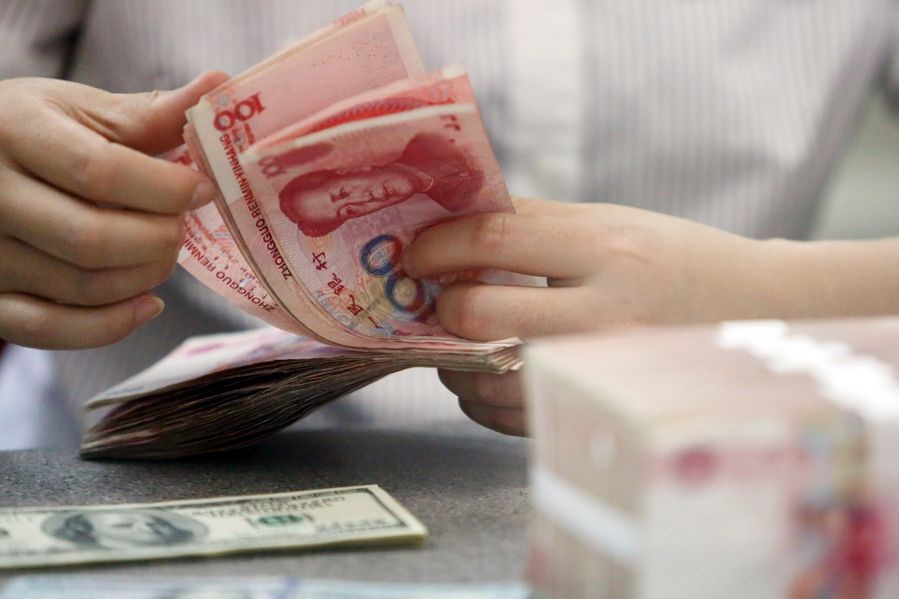Renminbi gains wider international acceptance


The renminbi has seen wider acceptance in international usage as the country's resilient economic growth bolstered global demand and opening-up measures facilitated foreign investment in the country.
By the end of 2020, the RMB Internationalization Index (RII) reached 5.02, a sharp increase of 54.2 percent from a year earlier, data compiled by the International Monetary Institute of Renmin University of China showed.
The jump in the RII index was highly related to the augmentation of the RMB as a means of denomination and settlement in international trade, and a remarkable step-up in the performance of the RMB in terms of financial transactions.
The trend has continued into 2021. The Standard Chartered Renminbi Globalization Index rose to a new high of 2,698 in August.
Trade boosts RMB settlement
The world's second-largest economy took the lead in recovery from the COVID-19-induced slowdowns. As China's imports and exports surged in 2020, so did the global use of the RMB expand in trade settlement.
Cross-border use of the RMB, including payments and receipts, soared 44.3 percent year-on-year to 28.39 trillion yuan ($4.4 trillion) in 2020, an all-time high, said a report on internationalization of the RMB published by the People's Bank of China, the central bank.
In the first six months of 2021, the use of RMB in cross-border trade grew to 17.57 trillion yuan, accounting for 48.2 percent of the total during the period.
Cross-border RMB settlements were closely related to China's real economy, such as current account and direct investment, which saw faster growth, the report said. RMB usage in raw material trading and the Association of Southeast Asian Nations saw outstanding growth.
In November, the RMB maintained its spot as the fifth most active currency for global payments by value, taking up a share of 2.14 percent, increasing by 18.89 percent compared to October 2021, said the Society for Worldwide Interbank Financial Telecommunication, a global provider of financial messaging services.
The PBOC said a survey showed that around 78.8 percent of domestic and overseas industrial and business companies said they are considering using or elevating the share of RMB in their transactions.
Eased restrictions invite capital
The influx of capital into the Chinese market is also highly related to the country's efforts in carrying out reforms and widening opening-up across the field. The country has joined regional and global trade pacts, shortened negative lists, reduced tariff levels and improved the business environment. One noteworthy sector is the financial market.
Regulators have boosted two-way opening-up by expanding offshore RMB markets, opening the interbank bond market to global financial institutions and sovereign funds, optimizing RMB trading systems and institutions, and launching various schemes to facilitate foreign investment.
For example, last year, China scrapped quotas on the dollar-denominated qualified foreign institutional investor scheme (QFII) and its yuan-denominated sibling, RQFII, further streamlining the procedures for foreign institutional investors.
RMB exchange rates also enjoy more flexibility and stayed relatively stable compared with other currencies during the pandemic, making it a safe-haven asset for global investors.
A recent jump in foreign investment in Chinese equities and bonds denominated in the currency clearly showed a global preference for RMB products. By the end of October, bonds in China's interbank market held by overseas institutions totaled 3.85 trillion yuan, central bank data showed.
"Our customers have been investing in onshore Chinese bonds, and afterward, they found that the market was much different from other emerging economies, as it has more liquidity, depth and width," said Becky Liu, head of China Macro Strategy for Standard Chartered Bank.
The RMB is also set to become a more significant part of the global financial system as more central banks add the Chinese currency to their reserve assets.
Chinese yuan reserves held by global central banks expanded for 13 consecutive quarters to reach around $318.99 billion in the third quarter of 2021, maintaining fifth place with a share of 2.66 percent of total reserves, the International Monetary Fund said.
Xinhua
- Experts say investment will spur growth
- Stabilizing macro leverage ratio a long-term choice for China
- More tax, fee cuts seen on horizon to stabilize business, spur growth
- China's FDI inflow up 15.9% in first 11 months
- China Development Bank issues 15b yuan of bonds for green transportation projects




































